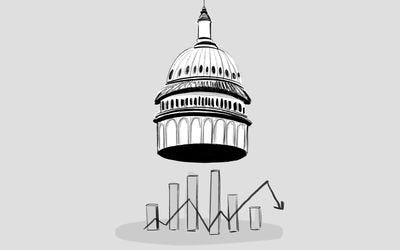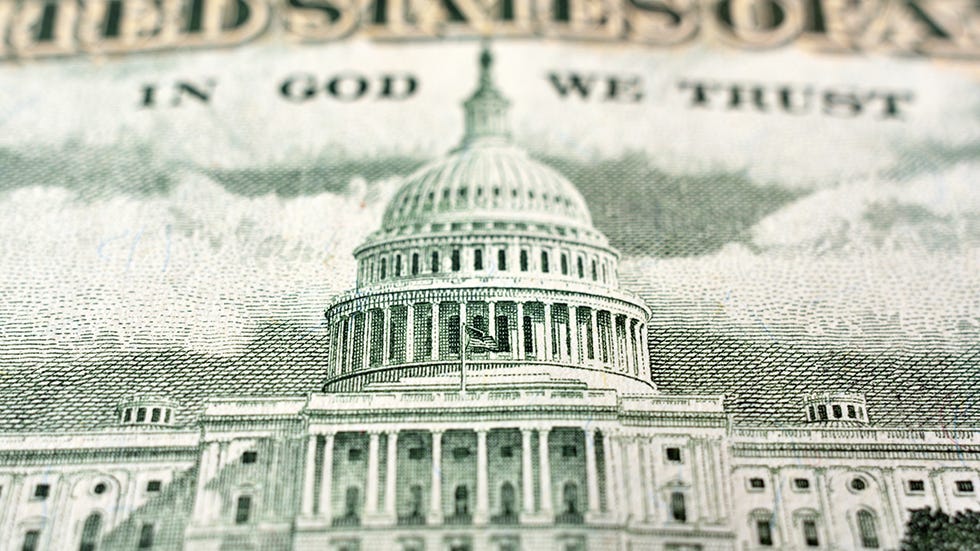Killing Economic Flourishing
Deregulation, Civilization, Competition, and the New Covenant of Corporatism
The Trump White House enacted a decision that will be remembered by future historians as a decisive turn in America’s economic and cultural direction on August 13, 2025. President Donald Trump revoked Executive Order 14036, which President Joe Biden had signed in July 2021 and which many advocates had considered the cornerstone of a renewed commitment to antitrust enforcement and regulatory expansion. With that revocation, the American government declared its intent to step away from a “whole-of-government” strategy for restraining the concentration of power in the hands of corporations, and to return to an approach that trusts the market to govern itself with minimal oversight.
This was not simply a technical maneuver in the field of economic regulation. It was a political and moral proclamation of the nation’s priorities, a reorientation of the state’s relationship with the economy, and ultimately a statement about what the United States believes freedom itself to be. If Biden’s order had been about increasing federal intervention into private enterprise, then Trump’s revocation announced a philosophy of confident deregulation in which government limits itself to the bare minimum and entrusts free citizens and businesses to shape their own economic destiny.
The Meaning of Biden’s Order
Biden’s Executive Order 14036, signed on July 9, 2021, was sweeping in its ambition. It directed more than a dozen federal agencies to coordinate in healthcare, technology, finance, agriculture, and labor with the stated aim of countering consolidation. It included more than seventy initiatives designed to expand the government’s scrutiny of contracts, mergers, and local industries. Its vision, while expansive, relied on the assumption that bureaucrats rather than entrepreneurs best understood how markets should function, and that equilibrium could only be maintained through government oversight.
Trump’s revocation eliminated that framework entirely. In place of a “whole-of-government” approach that burdened businesses with regulatory red tape, the new administration declared that the market would flourish best when government interference was removed. Department of Justice officials celebrated the decision as the beginning of a “new American Golden Age” of competition, claiming that by stepping away from regulatory prescriptivism the government would empower innovators and communities to thrive. The philosophical shift could not have been clearer: one vision saw government as the central arbiter of fairness, while the other viewed government as an obstacle to the creative genius of the market.
Covenant and the Christian Vision of Economy
For the Catholic mind, this debate cannot be reduced to economic theory or political expedience. The economy is not an autonomous sphere of life governed only by supply and demand, yet neither is it something the state must constantly manipulate. It is part of the moral order of civilization, and as such it must be governed by covenantal principles that recognize freedom and responsibility. The market, when left free, is an instrument of providence, a means by which God provides for His people through creativity, risk, and enterprise, and it must therefore be respected as a natural expression of human liberty.
St. Thomas Aquinas reminds us that commerce, like all human activity, must be ordered to the common good and must respect the natural law. But Aquinas also acknowledged the rightful freedom of exchange and the legitimacy of profit as long as it is justly acquired. Transactions that are freely entered into, wages that rise through genuine competition, and enterprises that expand to meet demand are not evils to be feared but blessings to be encouraged. The biblical vision of freedom is not suffocating control, but the covenantal reality of being free to build, serve, and create. When markets operate with fewer artificial restraints, they become laboratories of human ingenuity that can lift families and nations alike.
The Real-World Stakes of Deregulation
The reduction of competition policy is not a theoretical exercise but a decision that touches the lives of ordinary Americans in tangible ways. When healthcare systems are allowed to innovate and expand without excessive oversight, the result is often greater efficiency, broader reach, and lower costs achieved through scale. When technology platforms are freed from constant government interference, the result is new tools, services, and opportunities that transform everyday life. When agribusinesses are liberated from suffocating regulations, farmers can embrace innovation, consumers enjoy lower prices, and global markets open for American goods.
Every example reveals the same truth: when free men and women are trusted with economic liberty, the results are prosperity and growth. Consolidation, while often criticized, can provide stability, lower costs, and efficiency that smaller operations cannot always achieve. Freedom survives when individuals, families, and businesses are trusted to compete without an overbearing state dictating terms. Just as tyrannical states suffocate human dignity, so too does excessive regulation suffocate creativity, risk-taking, and the entrepreneurial spirit that has always been the backbone of America.
Economic Freedom as a Pathway to Flourishing
The deeper issue is not merely policy but principle. In rejecting an expanding regulatory regime, America affirms its true faith in liberty. This confidence in the market is not blind idolatry, but a recognition that human beings, created in the image of God, are capable of enterprise, stewardship, and innovation without constant government control. Pope Leo XIII in Rerum Novarum defended the natural right of private ownership and enterprise, and warned against collectivist impulses that would strip individuals of their God-given ability to labor, produce, and flourish.
The Catholic worldview insists that wealth is a gift to be stewarded, not demonized. The goods of creation are destined for all, and history shows that free economies with minimal regulatory interference consistently generate more wealth, better opportunities, and higher standards of living for the weak and vulnerable than planned economies ever have. Deregulation, rightly understood, is not an abdication of justice but a restoration of trust in human liberty ordered toward the common good.
The Duty of Catholics in This Moment
The revocation of Biden’s order should awaken Catholics to their duty in affirming the moral dimension of freedom. First, we must remember that the purpose of freedom, whether political or economic, is covenantal. It is liberty to serve God and neighbor through work, stewardship, and the creation of wealth that blesses communities. Second, we must support the entrepreneurial spirit of small and large businesses alike, recognizing that prosperity comes not from government redistribution but from productive labor and innovation. Third, we must bear witness in the public square that competition, when unleashed, strengthens society by rewarding diligence, fostering creativity, and lifting families out of poverty.
The Church has always insisted that the economy cannot be separated from morality. From the prophets who blessed honest merchants, to the apostles who labored with their own hands, to the encyclicals that defend the rights of private property and free exchange, the Catholic tradition has consistently affirmed the dignity of enterprise when practiced in justice.
Right Freedom
The revocation of competition policy is more than a matter of partisan dispute. It is a revelation of the nation’s confidence in liberty and a test of its civilization. If America defines freedom as the presence of opportunity and celebrates deregulation as a pathway to prosperity, then it will discover, sooner rather than later, that such freedom yields abundance, innovation, and resilience.
True freedom, as Scripture proclaims, is found only in Christ, who liberates us not to pursue our desires without limit but to exercise our God-given creativity in covenant with Him. “If the Son sets you free, you will be free indeed” (John 8:36). The liberation of the market, therefore, must be seen as a reflection of that deeper liberation: a society that trusts its people rather than binding them in endless red tape.
As Catholics and as citizens, we must not be seduced by the false gospel of state control, which promises fairness while delivering stagnation. We must instead labor to build an economy of liberty, where competition sharpens excellence, where wealth serves the common good through voluntary generosity, and where freedom is ordered toward God. Only then will our civilization avoid the fate of those who mistook bureaucracy for justice and central planning for peace.






